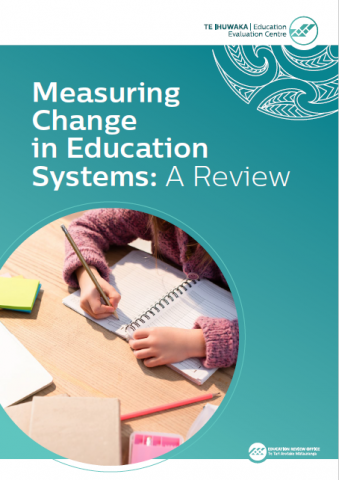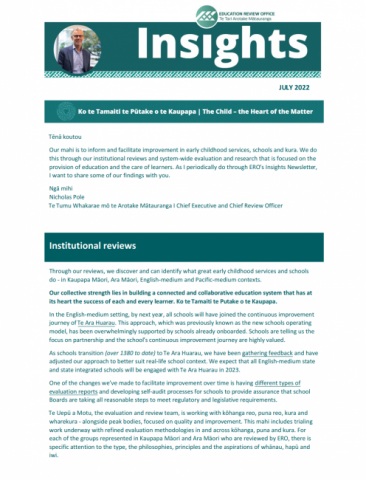Review and Improvement Services
Published: 31 Mar 2021
We carry out external evaluations at early childhood services, schools and kura to provide information on their performance and to support improvement for high quality education.
- Audience:
- Academics
- Early learning
- Education
- Māori-medium
- Parents
- Schools
- Content type:
- Basic page


